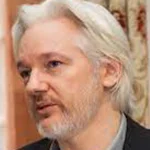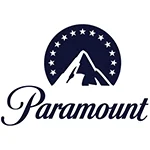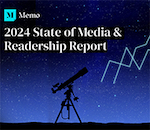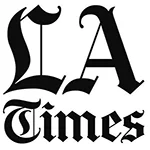Often "reputation journalism" is inconsequential, as when sports and show business media praises ballplayers and actors without mentioning their unsavory past. That type of coverage falls in the category of "does it really matter?"
But recently as the war drums are again being played asking for American action in Iraq, the same clique leading the war cries during the Bush era by saying how important U.S. military action was needed to protect America from terrorist attacks – Dick Cheney, Paul Wolfowitz, Bill Kristol, Paul Bremer and John McCain – (as odwyerpr.com editor Kevin McCauley wrote on June 24) are again being position by the media as wise men and again are saying that Iraq must be defended to protect the American homeland, without the media reminding their guests and viewers how wrong they were in the past.
Thus far I haven’t seen another wrongo, Ahmed Chalabi, the Iraqi politician who was touted as an Iraq expert during the call to topple ex-Iraqi President Saddam Hussein, and received more media exposure than the Super Bowl, World Cup and World Series together, making media appearances, (which I might have missed). But as sure as the media will reach out to another war hawk, Donald Rumsfeld, Chalabi’s media invites will soon come.
The continuous use of “experts” who have been proven wrong in the past about Iraq shows the shallow side of media coverage, known as pack journalism. The use of fallen “experts” is not to be confused with the journalistic practice of giving both sides of the story. It’s both “repetition and reputation” journalism combined as it helps reestablish the reputation of newsmakers who shouldn’t be considered “experts” based on their past records.Unfortunately, President Obama and Secretary of State Kerry are repeating the echoes of the past as they state that American troops will only act as advisors to Iraq's army and not conduct military operations.
It's as if they were mouthing the words of Presidents Eisenhower and Kennedy, both of whom said they were only sending military advisors to Vietnam.
Is sending military advisors to Iraq necessary to protect the U.S. from terrorism or is it to protect Iraq’s oil fields (as Obama has just given permission for companies to again export American oil)? It’s a question that should be debated.
* * *
Arthur Solomon, former senior VP at Burson-Marsteller, contributes to PR/sports business publications, consults on PR projects and serves on the e Seoul Peace Prize nominating committee. He can be reached at [email protected].


 Trump Media & Technology Group today reported a $58.2M net loss on $4.1M in 2023 revenues, a disclosure that drove its stock price down 22.6 percent to $47.96.
Trump Media & Technology Group today reported a $58.2M net loss on $4.1M in 2023 revenues, a disclosure that drove its stock price down 22.6 percent to $47.96. Barry Pollack, an attorney at Wall Street’s Harris St. Laurent & Wechsler, has registered Julian Assange as a client with the Justice Dept. “out of an abundance of caution.”
Barry Pollack, an attorney at Wall Street’s Harris St. Laurent & Wechsler, has registered Julian Assange as a client with the Justice Dept. “out of an abundance of caution.” Paramount Global to slash 800 jobs in what chief executive Bob Bakish calls part of an effort to “return the company to earnings growth"... Rolling Stone editor-in-chief Noah Shachtman is exiting at the end of the month due to disagreements with chief executive Gus Wenner over the direction the magazine is taking... The New York Times broke the $1 billion barrier in annual revenue from digital subscriptions in 2023... Press Forward is investing more than $500 million to strengthen local newsrooms.
Paramount Global to slash 800 jobs in what chief executive Bob Bakish calls part of an effort to “return the company to earnings growth"... Rolling Stone editor-in-chief Noah Shachtman is exiting at the end of the month due to disagreements with chief executive Gus Wenner over the direction the magazine is taking... The New York Times broke the $1 billion barrier in annual revenue from digital subscriptions in 2023... Press Forward is investing more than $500 million to strengthen local newsrooms. The majority of news articles are read within the first three days of publication, according to a recent report.
The majority of news articles are read within the first three days of publication, according to a recent report. The Los Angeles Times gives pink slips to 115 people or 20 percent of its newsroom staff... TIME is also laying off about 30 employees, which is approximately 15 percent of its editorial staff... The Baltimore Banner, which was launched by Stewart Bainum in 2022 after he failed to buy the Baltimore Sun, added 500 subscribers per day in the three days following Sinclair Broadcast Group's deal to purchase the Sun.
The Los Angeles Times gives pink slips to 115 people or 20 percent of its newsroom staff... TIME is also laying off about 30 employees, which is approximately 15 percent of its editorial staff... The Baltimore Banner, which was launched by Stewart Bainum in 2022 after he failed to buy the Baltimore Sun, added 500 subscribers per day in the three days following Sinclair Broadcast Group's deal to purchase the Sun.


 Have a comment? Send it to
Have a comment? Send it to 
No comments have been submitted for this story yet.